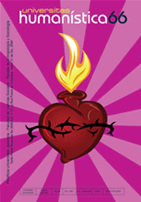Resumen
En este artículo se reflexiona en torno a cómo la vida cotidiana y el juego se constituyeron en las estrategias de formación ciudadana que se emplearon con los niños de las localidades de Santa Fe, La Candelaria y Suba, entre otras, dentro de los objetivos del Proyecto Nuevas voces ciudadanas, del Departamento Administrativo de Bienestar Social (DABS). El texto hace parte de la observación de algunos talleres y recorridos urbanos que se realizaron con los pequeños en el segundo semestre de 2002. Se indaga la manera como los niños asumen la dinámica urbana, en relación con los espacios de socialización y con los lugares de la sociabilidad, que determinan el carácter social de la vida pública y de la vida privada. El tema de la formación ciudadana se aborda desde la perspectiva de los derechos y la participación que los niños experimentan en escenarios públicos como la calle, el vecindario, el parque, el colegio o la escuela, donde aprenden a deliberar sobre los intereses y las necesidades de su comunidad. Un concepto fundamental que se utiliza es el de tercera zona, ese espacio propicio para que los niños exploren la creatividad, la libertad, la imaginación, el asombro y la diferencia. Por otro lado, se analiza cómo viven los niños en el ámbito de lo privado, es decir, en el espacio íntimo de la familia. 
La revista Universitas Humanística se encuentra registrada bajo la licencia Creative Commons Reconocimiento 4.0 Internacional. Por lo tanto, esta obra se puede reproducir, distribuir y comunicar públicamente en formato digital, siempre que se reconozca el nombre de los autores y a la Pontificia Universidad Javeriana. Se permite citar, adaptar, transformar, autoarchivar, republicar y crear a partir del material, para cualquier finalidad (incluso comercial), siempre que se reconozca adecuadamente la autoría, se proporcione un enlace a la obra original y se indique si se han realizado cambios. La Pontificia Universidad Javeriana no retiene los derechos sobre las obras publicadas y los contenidos son responsabilidad exclusiva de los autores, quienes conservan sus derechos morales, intelectuales, de privacidad y publicidad.
El aval sobre la intervención de la obra (revisión, corrección de estilo, traducción, diagramación) y su posterior divulgación se otorga mediante una licencia de uso y no a través de una cesión de derechos, lo que representa que la revista y la Pontificia Universidad Javeriana se eximen de cualquier responsabilidad que se pueda derivar de una mala práctica ética por parte de los autores. En consecuencia de la protección brindada por la licencia de uso, la revista no se encuentra en la obligación de publicar retractaciones o modificar la información ya publicada, a no ser que la errata surja del proceso de gestión editorial. La publicación de contenidos en esta revista no representa regalías para los contribuyentes.


